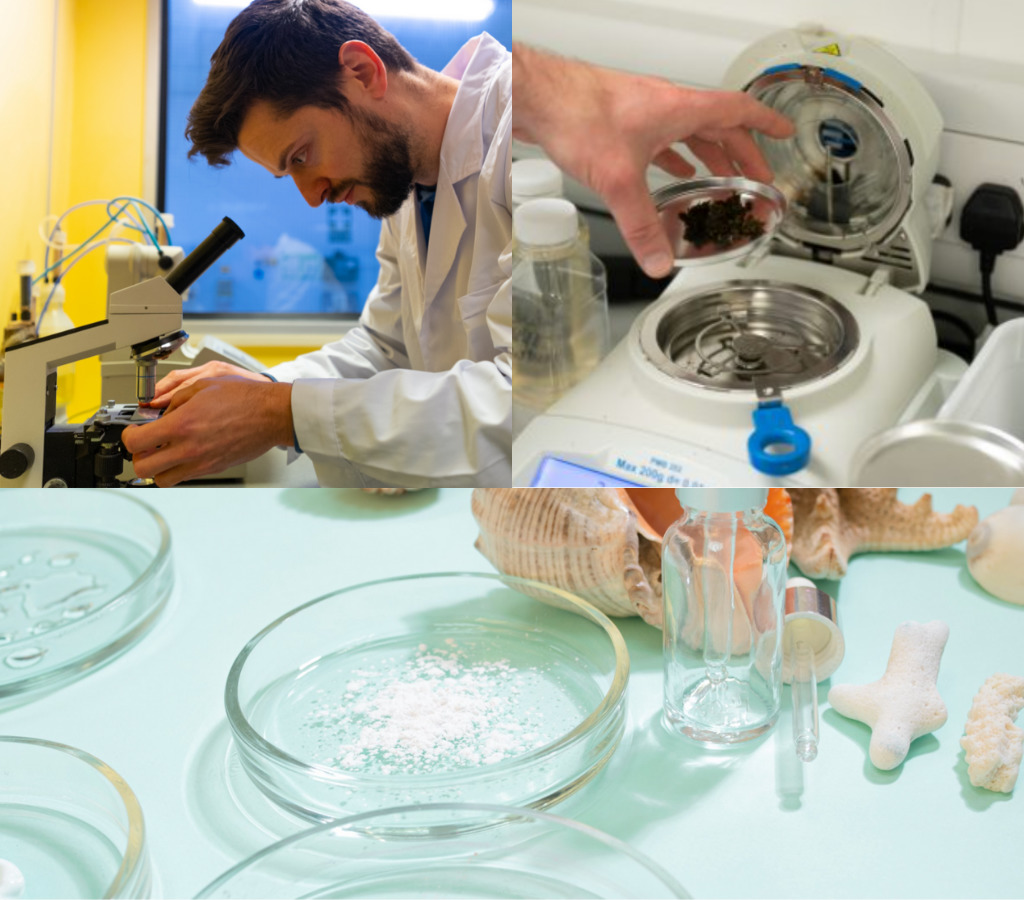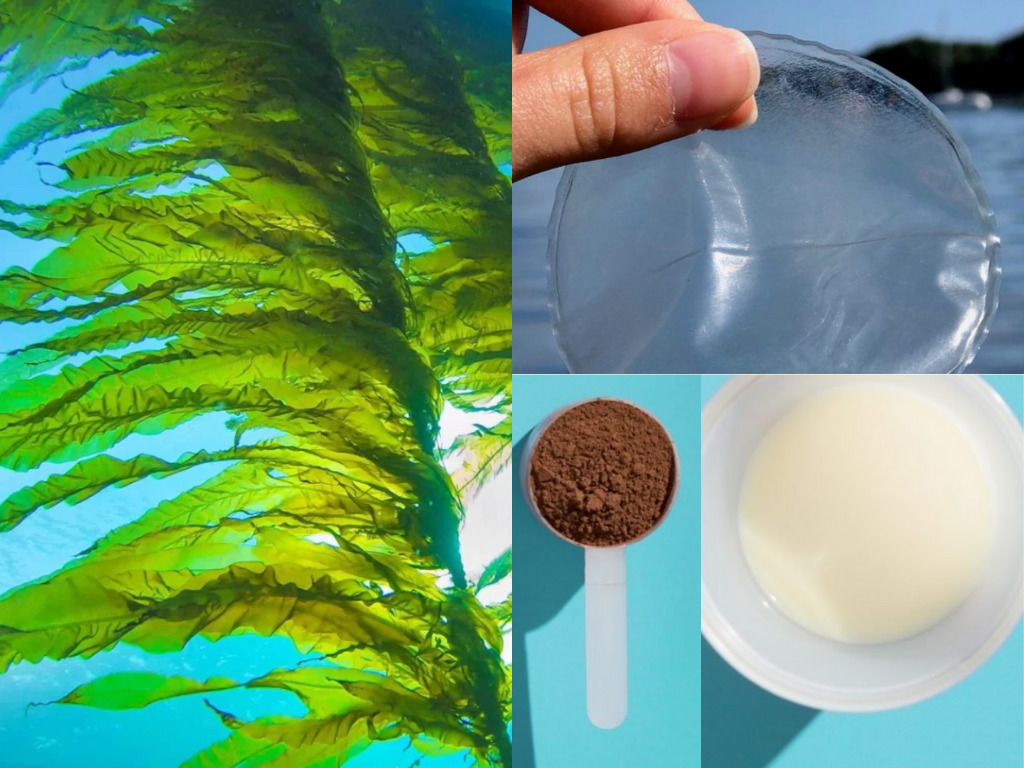4 Mins Read
Seaweed processing and food & material innovation firm Oceanium announced it has raised GBP£2M (approx US$$2.7M) in a second seed round led by the Green Angel Syndicate and global conservation NGO the World Wildlife Fund (WWF). The startup plans to use this capital to scale up its production of seaweed for applications in nutritional food products and sustainable packaging materials.
U.K.-based Oceanium announced the first close of another seed funding round that was led by Green Angel Syndicate that works to fight climate change, as well as anchor investor WWF, Syndicate Room, Glass Wall Syndicate members, Kingfisher Capital, a UHNW family office, and ‘green’ angel investors hailing from the U.S., the U.K. and Europe.
In addition to this, the round received earlier investments from ocean impact VCs Katapult Ocean and Sky Ocean Ventures, along with government agency Scottish Enterprise.
The company will put the funds to use to scale its proprietary bio-refinery and processing model in order to develop the sustainable seaweed farming industry, which it describes as a regenerative form of aquaculture that helps capture CO2 and nitrogen, allowing biodiversity to flourish, and can generate employment opportunities for those living along the coastal areas.
Oceanium’s technical refinement method is being adapted to develop seaweed that can be used to make plant-based foods like protein, fibre and bioactive nutraceuticals. Thanks to its cascade refinery techniques, the startup will also work on creating a sustainable, home-compostable packaging alternative to plastic.
In a press release seen by Green Queen, co-founder and CEO of Oceanium, Karen Scofield Seal said: “The calibre of investors in this round of funding highlights the opportunity and obligation we have to create a market for sustainably farmed seaweed and drive systemic change by providing regenerative food and material sources. We will continue to work closely with regional and global conservation partners including WWF, Safe Seaweed Coalition and Seaweed for Europe to ensure we lay the best possible foundations for what will be a transformative industry, in terms of both economic, societal and environmental impact.”

The calibre of investors in this round of funding highlights the opportunity and obligation we have to create a market for sustainably farmed seaweed and drive systemic change by providing regenerative food and material sources
Karen Scofield Seal, co-founder and CEO of Oceanium
Co-founder and CTO of Oceanium Dr. Charlie Bavington added that the company’s biorefinery process is built on decades of experience and provides the technology that is required to extract the maximum value from seaweed. “By developing products which are in very high demand including plant-based food ingredients and home compostable bio-packaging material, we will drive demand for farmed seaweed in U.K., Europe and North America.”
According to the Safe Seaweed Coalition, seaweed has the potential to contribute to 10% of the world’s food supply by using just 0.03% of the ocean’s surface, and can further capture 135M tons of CO2 per year by 2030. The wonder marine plant can absorb 30% of the nitrogen that enters the oceans from land-based pollution.
Paul Dobbins from WWF said that the firm’s “pioneering expansion of processing capacity for farmed seaweed is an exciting step for the industry. Brought to scale, cultivated seaweed could help achieve conservation goals by providing a nutritious source of food and livestock feed with less land and resource inputs. Developing an innovative biorefinery process will also help create feedstock for biodegradable packaging alternatives to petroleum-based plastics.”
Read: Amazing Algae: 8 Startups Leveraging This Super Seaweed, From T-Shirts To Shrimp
Brought to scale, cultivated seaweed could help achieve conservation goals by providing a nutritious source of food and livestock feed with less land and resource inputs. Developing an innovative biorefinery process will also help create feedstock for biodegradable packaging alternatives to petroleum-based plastics
Paul Dobbins, WWF
“In addition to offering benefits to humans as a livelihood, particularly among indigenous communities and women, seaweed sequesters carbon and is effective at absorbing nutrients like nitrogen and phosphorus, and can reverse ‘dead zones’ in our oceans, promoting marine biodiversity,” said Megan Reilly Cayten, co-founder and chief commercial officer of Oceans 2050 that works on a science-based strategy to catalyse regenerative solutions.
Several companies are recognizing the potential of seaweed, for instance, British online food ordering and delivery service Just Eat has partnered with packaging start-up Notpla to test compostable seaweed food boxes to combat the plastic waste the food takeaway industry generates.
Similar to Oceanium, California-based startup Trophic is looking to use seaweed to develop a sustainable and scalable protein that will dominate in the protein sector with support from the Good Food Institute (GFI), Activate and the ARPA-E, the government firm that funds state of the art energy tech projects. Another biomarine ingredient company Algaia received support for its seaweed-based solutions to produce plant-based alternatives by closing a US$2.4 million investment round.
Even countries like Indonesia that is facing a massive plastic waste crisis is turning to seaweed to replace plastic especially given that it is the world’s second largest producer of seaweed, producing 8 million tonnes of it each year.
Lead image courtesy of Oceanium.



